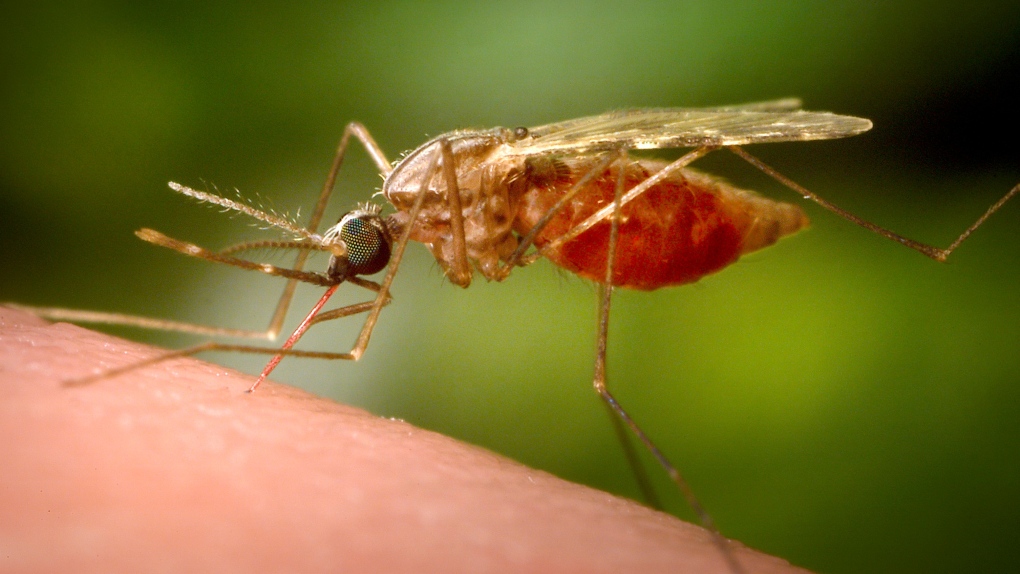Mosquito mayhem: Why the pests are so bad this year in Ontario
They buzz. They bite. They carry diseases that can be bad for your health.
It seems there’s more mosquitoes than ever this year – and people are noticing.
“This season has been absolutely nuts,” says Matthew Myers, office manager for Mosquito Hero in Waterloo.
Pest control services like the one Myers works at have been buzzing.
“We're finding the phones are ringing off the hook,” he says.
WHY ARE THERE SUDDENLY SO MANY MOSQUITOES?
So, why might the pests be more pesky in some areas?
“Anytime water is stagnant on a property for more than four days, mosquito populations multiply at a very fast rate,” Myers says.
“We found this year in May, early rain, and that rain kept people off their properties. They weren't able to get out and do their typical cleanups because we were getting it so consistently.”
It could also be there are more species of mosquitoes. They travel with human goods across the world and breed in their new homes, creating types of mosquitoes that never existed before.
“We're finding an increased mosquito population -- they're an absolute nuisance,” Myers says.
Warmer temperatures caused by climate change also allows some types of mosquitoes to reproduce faster.
 This 2014 photo made available by the U.S. Centers for Disease Control and Prevention shows a feeding female Anopheles funestus mosquito. (James Gathany/CDC via AP)
This 2014 photo made available by the U.S. Centers for Disease Control and Prevention shows a feeding female Anopheles funestus mosquito. (James Gathany/CDC via AP)
WHAT VIRUSES DO MOSQUITOES CARRY IN ONTARIO?
Mosquitoes in Ontario can be infected with West Nile virus, which they can pass on to humans with a bite.
“In most people, West Nile virus will not cause any symptoms,” says Rebecca Piovesan, public health inspector for the Region of Waterloo. “You can be infected, and you're not even going to show any signs or symptoms. But in some people, they can experience mild flu-like illness -- so fever, headache, body ache, tiredness, possibly a rash. And in very rare cases, illness might be extreme.”
Region of Waterloo Public Health is not overly concerned, but they are keeping a watchful eye.
“We monitor for West Nile virus in mosquitoes and people. We identify mosquito breeding grounds like standing water sites and catch basins. And then we also control mosquito populations by larviciding,” Piovesan says.
The region began its annual of larvicide application on June 1. Locations include catch basins, sewage lagoons and ditches and standing water. The region said the application of larvicide will last until Aug. 31.
HOW TO KEEP MOSQUITOES AWAY
Pest control companies like Mosquito Hero can help homeowners treat the pests with a safe and special spray.
“We’re going to treat a bush like this,” Myers says, demonstrating how the liquid is applied. “The spray is going to push up the leaves so we get spray on both sides of the plant.”
Experts advise wearing loose-fitting, light-coloured and tightly-woven clothing to reduce your risk of being bitten.
Repellants like DEET and some natural oils can also help keep the pests away.
CTVNews.ca Top Stories

Grandparents killed in wrong-way crash on Hwy. 401 identified
A 60-year-old man and a 55-year-old woman killed in a wrong-way crash on Highway 401 earlier this week have been identified by the Consulate General of India in Toronto.
Police arrest 3 Indian nationals in killing of B.C. Sikh activist Hardeep Singh Nijjar
Three people have been arrested and charged in the killing of B.C. Sikh activist Hardeep Singh Nijjar – as authorities continue investigating potential connections to the Indian government.
Suter scores late goal, clinches series for Canucks
Pius Suter scored with 1:39 left and the Vancouver Canucks advanced to the second round of the NHL playoffs with a 1-0 victory over the Nashville Predators on Friday night in Game 6.
TD worst-case scenario more likely after drug money laundering allegations: analyst
TD Bank Group could be hit with more severe penalties than previously expected, says a banking analyst after a report that the investigation it faces in the U.S. is tied to laundering illicit fentanyl profits.
Quebec man who threatened Trudeau, Legault online sentenced to 20 months in jail
A Quebec man who pleaded guilty to threatening Prime Minister Justin Trudeau and Premier François Legault has been sentenced to 20 months in jail.
Human remains found in rural Sask. possibly a decade old, RCMP say
RCMP say human remains found in a rural area in central Saskatchewan may have been there for a decade or more.
Britney Spears 'home and safe' after paramedics responded to an incident at the Chateau Marmont, source tells CNN
A source close to singer Britney Spears tells CNN that the pop star is 'home and safe' after she had a 'major fight' with her boyfriend on Wednesday night at the Chateau Marmont in West Hollywood.
Canadian doctor concerned new weight-loss drug Wegovy may be used inappropriately
As Wegovy becomes available to Canadians starting Monday, a medical expert is cautioning patients wanting to use the drug to lose weight that no medication is a ''magic bullet,' and the new medication is meant particularly for people who meet certain criteria related to obesity and weight.
Drew Carey is never quitting 'The Price Is Right'
Drew Carey took over as host of 'The Price Is Right' and hopes he’s there for life. 'I'm not going anywhere,' he told 'Entertainment Tonight' of the job he took over from longtime host Bob Barker in 2007.



























